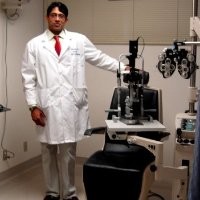Researchers have recently discovered over 5,000 genetic variants responsible for the proliferation of certain cancers, while also suggesting a potential therapeutic target to prevent or treat these cancers. This groundbreaking study was carried out by a team from the Wellcome Sanger Institute, the Institute of Cancer Research in London, and the University of Cambridge.
The research team examined the ‘tumour protection’ gene named BAP1, to assess the possible health implications of all genetic variations. They discovered that approximately 20% of the potential changes were pathogenic, considerably augmenting the risk of developing cancers in the eye, lung lining, brain, skin, and kidney.
Published in Nature Genetics, these findings are freely available for doctors worldwide, aiding them in diagnosing patients and selecting the most effective treatments. The study is also beneficial for individuals of various ethnic backgrounds, who have previously been underrepresented in genetics research.
In addition to identifying these genetic variants, the researchers also found a connection between destructive BAP1 variants and elevated levels of IGF-1, a growth factor and hormone. This finding paves the way for the creation of new drugs that could potentially inhibit these harmful effects, thereby slowing down or completely halting the progression of certain cancers.
The BAP1 protein is a remarkable tumour suppressor, protecting against numerous types of cancer. Inherited variants that interfere with the protein can heighten a person’s lifetime risk of developing these cancers by up to 50%, commonly around middle age.
Early detection of these variants through genetic screening can guide preventative measures, significantly enhancing treatment effectiveness and improving the quality of life for affected individuals. However, until now, understanding of specific genetic changes in BAP1, especially those rare variants that cause malfunction and stimulate cancer growth, has been limited.
Using ‘saturation genome editing’, a process of artificially altering the genetic code of human cells grown in a dish, the researchers tested all 18,108 possible DNA changes in the BAP1 gene. They found that 5,665 of these changes were detrimental, disrupting the protein’s protective effects. Individuals carrying these harmful BAP1 variants are over 10% more likely to be diagnosed with cancer than the general population, as confirmed by an analysis of UK Biobank data.
The research team also found that individuals with harmful BAP1 variants have elevated IGF-1 levels in their blood, a hormone associated with cancer growth and brain development. This suggests that IGF-1 could be a target for new treatments to slow down or prevent certain cancers.
The study profiles all possible BAP1 variants from diverse populations, not only those prevalent in European clinical records, helping to address the underrepresentation of non-European populations in genetic studies. The researchers hope to apply this technique to a wider range of genes, potentially covering the entire human genome in the next decade with the Atlas of Variant Effects.


Comments are closed for this post.